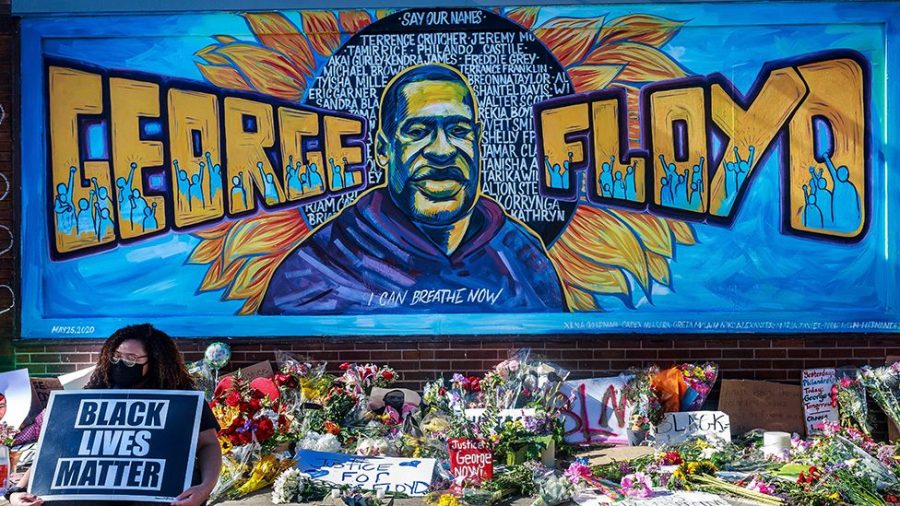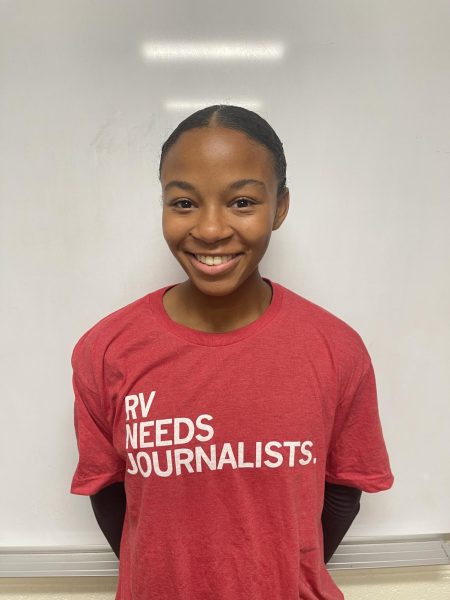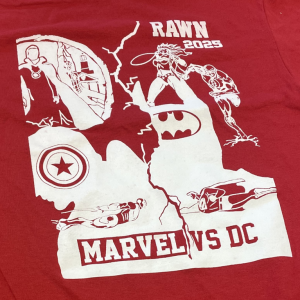Derek Chauvin convicted of all three charges in murder of George Floyd
Former Minneapolis police officer faces up to 40 years in prison for the murder of George Floyd. Chauvin is the only the second police officer to be convicted of murder from an on-duty incident in the state.
April 21, 2021
Former Minneapolis police officer Derek Chauvin was convicted of second-degree manslaughter, second-degree unintentional murder and third-degree murder charges yesterday in the death of George Floyd.
Floyd’s death sparked protests worldwide against police brutality as videos surfaced of Chauvin’s knee on his neck for nearly 10 minutes. This verdict is not only celebrated by Floyd’s family but also by many in the Black community and their allies who continue to fight for racial justice.
The jury deliberated for about 10 hours and delivered the verdict to the judge around 4 p.m. yesterday afternoon.
During the trial, defense attorney Eric Nelson brought up three main arguments in an effort to get an acquittal for Chauvin: other underlying causes for death, “force as unattractive yet necessary” and hostile crowd.
The other underlying causes argument emphasized Floyd’s drug use and preexisting medical health conditions as causes for his death, shifting the blame away from Chauvin’s actions.
“The evidence will show that Mr. Floyd died of a cardiac arrhythmia that occurred as a result of hypertension, his coronary disease, the ingestion of methamphetamine and fentanyl, and the adrenaline flowing through his body, all of which acted to further compromise an already compromised heart,” Nelson said in his opening statement.
The prosecution countered the argument with several expert witnesses and even police testimony from other officers on the scene. In response to Nelson’s argument, the prosecution produced evidence to firmly place the responsibility on Chauvin.
“Mr. Floyd died from positional asphyxia, which is a fancy way of saying he died because he had no oxygen left in his body,” Dr. Bill Smock, an emergency medicine physician and the police surgeon for the Louisville Metro Police, said. “That is not a fentanyl overdose. That is somebody begging to breathe.”
The argument that the force Chauvin used is unattractive yet necessary suggests that although the video of Floyd’s death is graphic to bystanders, it is necessary for police officers in the field.
“You will learn that Derek Chauvin did exactly what he had been trained to do over the course of his 19-year career,” Nelson said in his opening statement. “The use of force is not attractive, but it is a necessary component of policing.”
Minneapolis Police Chief Medaria Arradondo testified on April 5 condemning the force Chauvin used against Floyd calling his death a “murder.”
“There is an initial reasonableness in trying to just get him under control in the first few seconds,” Arradondo said. “But once there was no longer any resistance and clearly when Mr. Floyd was no longer responsive and even motionless, to continue to apply that level of force to a person proned out, handcuffed behind their back — that in no way shape or form is anything that is by policy. It is not part of our training, and it is certainly not part of our ethics or our values.”
The hostile crowd argument suggests that bystanders who witnessed the death of Floyd distracted Chauvin from caring for him by screaming to get his knee off of Floyd’s neck. This contradicts Chauvin’s second-degree manslaughter charge which says that he was negligent which ultimately led to Floyd’s death.
“They are screaming at them, causing the officers to divert their attention from the care of Mr. Floyd to the threat that was growing in front of them,” Nelson said.
This argument was countered by numerous other witnesses, including police and emergency personnel.
“If you don’t feel safe around you, if you don’t have enough resources, it’s very difficult to focus on the one thing in front of you,” Nicole Mackenzie, a Minneapolis Police medical support coordinator and CPR instructor, said.
Despite this, prosecutors argue that although it was possible for a crowd to distract Chauvin from being attentive to Floyd, that did not occur.
“In the body-worn video you can hear Mr. Floyd displaying his discomfort and pain, and you can also hear the defendant responding to him,” Los Angeles Police Sergeant Jody Stiger said.
After closing arguments were given on Monday and the jury finished deliberating, the verdict was read in court late yesterday afternoon convicting Chauvin of all three charges without bail until his sentencing in about eight weeks. Demonstrators erupted into celebration following the verdict, calling the rare conviction of a police officer a symbol that the country could be moving in the right direction.
“Let’s pause for a moment to proclaim this historical moment, not just for the legacy of George Floyd, but for the legacy of America, the legacy of trying to make America for all Americans so that George Floyd’s victory and America’s quest for equal justice under the law will be intertwined,” civil rights attorney Ben Crump, who represents the Floyd family, said at a news conference after the verdict was announced. The Floyd family also received calls from President Biden and Vice President Harris to show their support for the verdict.
Students at RV have been closely monitoring the trial, especially in the wake of several other instances of police brutality, including the death of Daunte Wright (which took place only miles from where the trial was happening in Minneapolis) and the recent release of body camera footage showing the shooting of an unarmed 13-year-old in Chicago.
“[This is] a much-needed step forward in the correction of our judicial system,”sophomore Zachary No said. “That change is happening, and continuing to peacefully protest is generating positive results. As people of the next generation, we have to continue speaking out with the voice we have been given.”
Both liberal and conservative students have called the landmark verdict a step in the right direction. “What Derek Chauvin did was horrible. Now that Derek Chauvin was charged for the crime he committed, I think it’s a big step for the BLM movement because George Floyd got justice,” said a freshman who wished to remain anonymous.
Although some people view the verdict as a small win for the Black community, others believe that there is still more work to be done in terms of fighting for racial justice, especially in regards to law enforcement.
“Although I am grateful that our communities will have one less officer who has a disregard for Black lives off the streets, there are simply not ‘just a few bad apples’ within law enforcement, but instead, an entire ‘rotten apple tree’ that needs to be dismantled and correctly rebuilt to serve and protect all members of society regardless of one’s skin color,” junior Jya Marshall, president of the Black Student Union, said. The BSU met last week to discuss the recent instances of police brutality and is currently working to develop action plans to create a stronger relationship between students of color and local police departments.
Floyd’s case and others similar to it call for police reform and target the biased system which many believe unfairly prosecutes and convicts people of color while protecting corrupt police officers. Despite this, some people continue to support police officers while still supporting the Black Lives Matter Movement.
“I’m a big fan of the police [as a] whole, but officers like Derek Chauvin aren’t the kind of people I want representing our men and women in blue,” senior Hamilton Scudder, who self-identifies as conservative, said. “I’m glad a bad cop will be getting punishment for the actions that unjustly cost the life of George Floyd, and I hope this trial will lead to more careful, honest and responsible policing across the country.”
“All three counts! All three counts!” the crowd chanted outside the courthouse steps in Minneapolis when the historic verdict was released yesterday. Cities across the country held peaceful demonstrations to celebrate the verdict, and civil rights groups have already started to mobilize in an effort to capitalize on the collective empathy and support for BLM. The verdict will arguably set the precedent for steps towards police reform and be the catalyst for racial justice not only in cases of police brutality but also for policies like the BREATHE Act that reimagine community safety.






